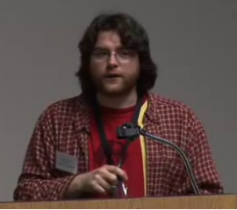A Quote by Steve McConnell
It's hard enough to find an error in your code when you're looking for it; it's even harder when you've assumed your code is error-free.
Related Quotes
There's a subtle reason that programmers always want to throw away the code and start over. The reason is that they think the old code is a mess. [...] The reason that they think the old code is a mess is because of a cardinal, fundamental law of programming: It's harder to read code than to write it.
Error is a supposition that pleasure and pain, that intelligence, substance, life, are existent in matter. Error is neither Mind nor one of Mind's faculties. Error is the contradiction of Truth. Error is a belief without understanding. Error is unreal because untrue. It is that which stemma to be and is not. If error were true, its truth would be error, and we should have a self-evident absurdity -namely, erroneous truth. Thus we should continue to lose the standard of Truth.



































